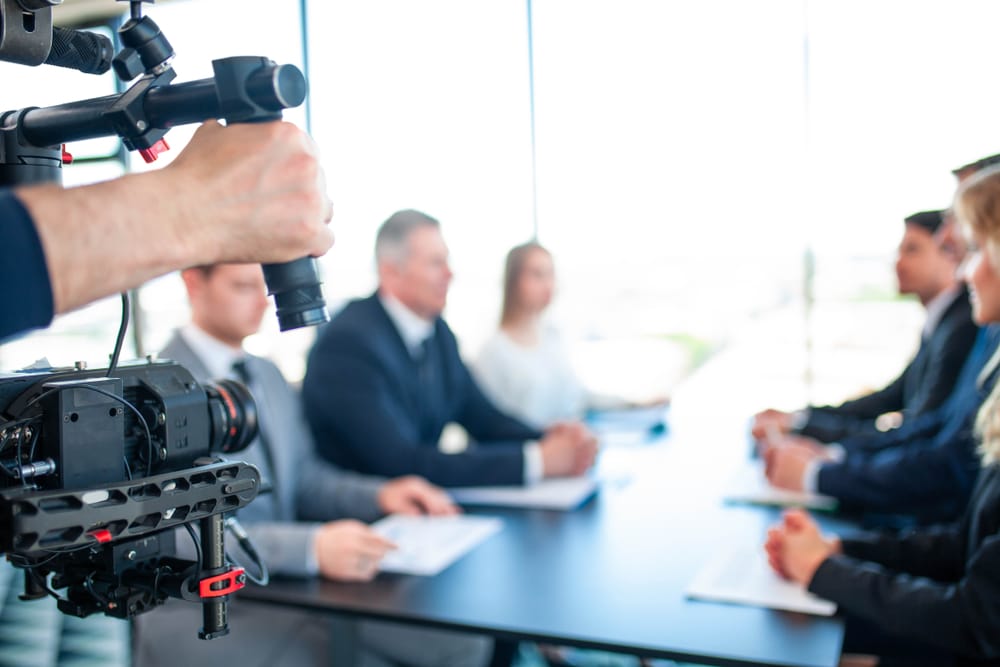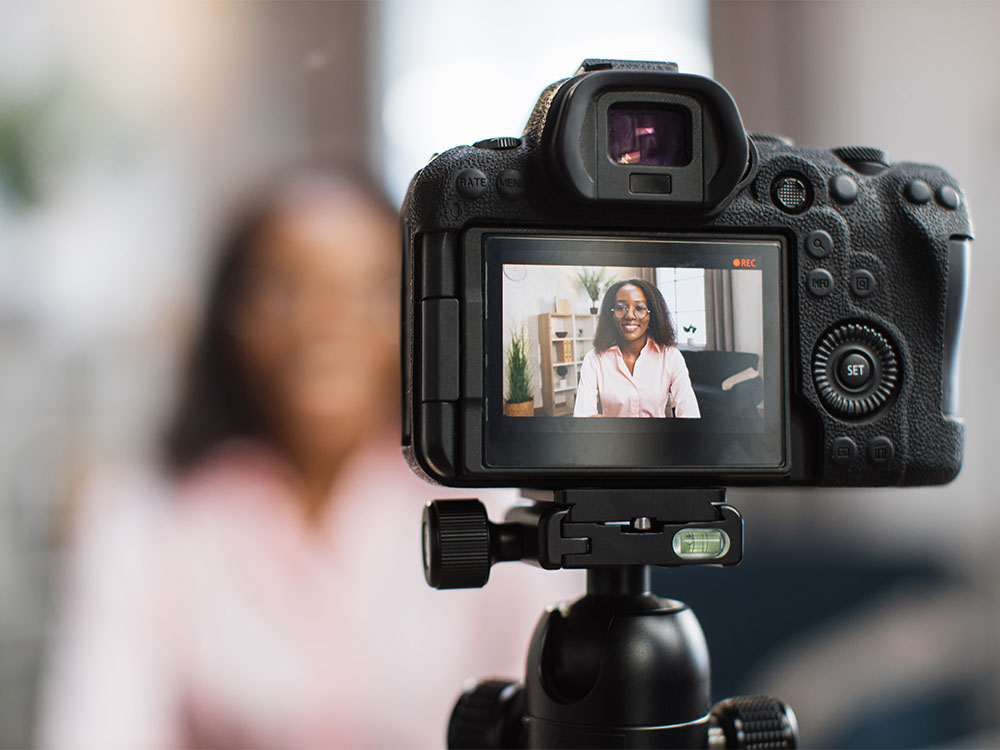Technical breakdown of successful legal video depositions
Wiki Article
The Significance of Legal Video Clip Depositions in Modern Legal Solutions: What You Must Know
Lawful video clip depositions have actually become crucial in today's legal landscape. They supply a multidimensional sight of witness statements that traditional records simply can not match. By capturing both verbal and non-verbal communication, these depositions boost the overall understanding of a witness's trustworthiness. Nevertheless, the effectiveness of video clip depositions pivots on various elements, consisting of conformity with legal criteria and best techniques (legal video depositions). Checking out these components exposes their true value in modern-day lawful servicesWhat Are Legal Video Clip Depositions?
Lawful video clip depositions work as a crucial tool in the litigation procedure. They involve tape-recording witness testimonies in a video layout, recording both non-verbal and verbal communication. This approach allows lawyers to record the temperament, expressions, and reactions of witnesses, providing a richer context for the testament. Commonly carried out in a regulated environment, these depositions are led by attorneys that ask questions while a stenotype reporter documents the dialogue. The resulting video can be critical for trial preparation, as it makes it possible for lawyers to evaluate the reliability of witnesses and improve their approaches. In addition, legal video clip depositions can be utilized in different legal contexts, ranging from civil conflicts to criminal situations. The aesthetic and acoustic components of video clip depositions boost the presentation of evidence, making it a vital element in the contemporary legal landscape. In general, they contribute considerably to the efficiency and effectiveness of legal proceedings.
Benefits of Video Clip Depositions Over Typical Approaches
Video clip depositions use many benefits compared to conventional methods of taking witness testimonies. One significant advantage is the capacity to capture both audio and visual components, offering a more thorough document of the witness's declarations. This twin layout boosts quality and permits lawful experts to reference details subtleties during trial prep work. Furthermore, video depositions promote remote engagement, making it much easier for witnesses that may be unavailable for in-person looks because of geographical constraints or wellness issues.Moreover, video depositions can expedite the total deposition process, reducing the moment and costs linked with travel and logistics. They additionally improve accessibility, as videotaped depositions can be quickly shared amongst lawful teams and referenced at any kind of time. This benefit adds to much better instance administration and preparation. On the whole, video depositions stand for a modern, reliable approach to collecting witness testimonies, lining up with the evolving needs of the lawful profession.The Function of Body Movement and Tone in Testimonies

In legal video depositions, body movement and tone play important duties in conveying a witness's reputation and dependability. Nonverbal signs can provide insights right into a witness's emotional state, affecting how their statement is regarded. Understanding the impact of these components is essential for jurors and attorneys alike when reviewing the dependability of a statement.
Nonverbal Interaction Insights
While spoken interaction is frequently stressed in lawful statements, nonverbal cues such as body language and tone play an important role in communicating reputation and feeling. Onlookers of depositions may note that a witness's position, gestures, and faces can significantly influence perceptions of reliability. Constant eye get in touch with may signal confidence, while avoiding stare can recommend dishonesty or discomfort. In a similar way, the intonation-- its volume, speed, and pitch-- can present feelings of genuineness or uncertainty. Attorneys must be in harmony with these nonverbal signals, as they usually supply essential context that matches talked words. Recognizing these subtleties can enhance the performance of depositions and affect the result of legal procedures.Psychological Tone Effect
The psychological tone communicated during legal testaments significantly impacts how a witness is regarded. Body movement, vocal inflections, and face expressions play crucial duties in forming the story of a testimony. A witness displaying confidence via stable eye contact and a calm tone can infuse a sense of dependability and engagement. On the other hand, signs of stress and anxiety, such as fidgeting or an unsteady voice, may bring about uncertainty concerning their account. The subtleties of psychological expression can affect the interpretation of truths, making it essential for attorneys to recognize these hints. In video clip depositions, the visual and auditory parts combine, highlighting the significance of emotional tone in communicating genuineness and reliability within the lawful process.Reliability and Reliability
An important aspect in developing reliability and dependability throughout testaments hinges on the witness's body language and tone of voice. Onlookers commonly depend on non-verbal hints-- such as eye get in touch with, stance, and motions-- to analyze a witness's genuineness. For instance, a witness who maintains eye contact and displays open body language may be perceived as more trustworthy and straightforward than one that stays clear of eye call or shows up shut off. Additionally, tone of voice plays an essential role; a consistent, tranquil tone can strengthen the trustworthiness of the testimony, while fluctuations in pitch or quantity might increase doubts. Ultimately, the combination of body movement and vocal tone substantially influences just how a witness's declarations are gotten and interpreted in a lawful context.Ideal Practices for Carrying Out Video Clip Depositions
Performing video clip depositions calls for mindful preparation and implementation to guarantee a reliable and clear presentation of testimony. It is essential to pick a silent, well-lit area to lessen disturbances and safe ideal video clip quality. The tools ought to be examined beforehand, including cameras, microphones, and lights, to stay clear of technological problems throughout the deposition.Next, parties included must assess the style and procedures in advance, ensuring that everyone comprehends their duties. The deponent ought to be informed on the procedure, including exactly how to respond plainly and concisely.Additionally, maintaining an expert disposition throughout the session is vital. This consists of avoiding talking over one an additional and validating that all inquiries are routed suitably. Finally, it is crucial to videotape the deposition in a format that permits for very easy playback and evaluation, protecting the stability of the statement for future usage.Lawful Factors To Consider and Compliance Issues
Exactly how do lawful factors to consider and conformity concerns influence the effectiveness of video clip depositions? Lawyers must navigate a complex landscape of laws, ensuring that video clip depositions stick to administrative regulations and criteria. Conformity with regulations worrying personal privacy, approval, and taping techniques is necessary. Getting specific consent from all events entailed is required to avoid lawful repercussions.Additionally, the admissibility of video clip evidence in court can pivot on conformity with procedural needs. Making certain that the devices used fulfills technological standards is additionally crucial, as low quality can threaten the deposition's reliability.Moreover, attorneys must be mindful of any type of specific state regulations that regulate video clip depositions, as these can vary greatly. Failing to deal with these factors to consider can not only threaten the stability of the deposition but likewise impact the total case approach, eventually influencing the client's legal results.How Video Clip Depositions Effect Jury Perception
While video clip depositions can work as powerful devices in legal proceedings, their influence on jury perception is substantial. The auditory and visual elements of video recordings supply jurors with a more thorough understanding of witness demeanor, reliability, and psychological reactions. This multimedia strategy can improve the jurors' capacity to evaluate the reliability of statement compared to standard text-based transcripts.Moreover, video depositions enable jurors to observe body language, intonation, and face expressions, all of which can affect their analysis of the witness's statements. The presence of a witness on display can humanize them, fostering empathy and connection, which may guide jurors' opinions. Alternatively, a witness who shows up undependable or incredibly elusive on video clip might cause negative understandings that affect a court's choice. Ultimately, the dynamic nature of video clip depositions plays a vital duty fit how visit this website jurors analyze evidence and reach their decisions.The Future of Video Depositions in Legal Technique
As advancements in modern technology remain to reshape the legal landscape, the future of video depositions is positioned for significant development. Developments such as man-made knowledge, online fact, and enhanced video clip conferencing tools are expected to streamline the deposition procedure and boost accessibility. Legal specialists might utilize AI-driven analytics to assess witness integrity and situation toughness much more effectively.Moreover, the integration of online fact can enable juries to experience immersive simulations of depositions, offering much deeper context and understanding. Furthermore, the trend towards remote depositions is likely to linger, offering higher flexibility for lawyers his explanation and clients alike.As remote job ends up being progressively stabilized, video depositions will likely become standard technique, reducing prices and time restrictions related to typical methods. Overall, these technological developments promise to enhance the efficiency, efficiency, and availability of video depositions in legal technique, inevitably changing just how attorneys prepare for trial.Often Asked Inquiries
Just How Much Do Legal Video Depositions Generally Price?

Can Video Depositions Be Utilized in Any Kind Of Type of Instance?
Video depositions can be used in numerous types of situations, consisting of civil, criminal, and family legislation. Their adaptability allows attorneys to existing witness testaments efficiently, adjusting to the details needs of different lawful scenarios.What Equipment Is Needed for a Video Deposition?
To perform a video deposition, crucial equipment includes a top notch camera, microphone, lighting, and a trustworthy recording tool. Additionally, a computer with modifying software application might be essential for post-production and formatting the last video clip.For how long Does a Common Video Deposition Last?
A regular video clip deposition lasts in between 2 to 4 hours, relying on the intricacy of the instance and the variety of inquiries postured. Extensive sessions might happen, however breaks are normally integrated for individual comfort.

Are Video Clip Depositions Admissible in Court?
Video depositions are normally acceptable in court, supplied they abide by legal standards and rules of evidence. Their usage boosts quality and protects witness statement, helping in the judicial process throughout hearings and trials. Lawful video clip depositions have actually ended up being vital in today's legal landscape. Additionally, lawful video clip depositions can be used in various lawful contexts, varying from civil conflicts to criminal cases. Additionally, video clip depositions assist in remote involvement, making it easier for witnesses that might be not available for in-person looks due to geographical restraints or health and wellness issues.Moreover, video depositions can quicken the general deposition process, lowering the time and expenses associated with traveling and logistics. Making sure that the equipment made use of satisfies technical criteria is also vital, as bad quality can threaten the deposition's reliability.Moreover, attorneys have to be conscious of any certain state laws that control video clip depositions, as these can vary find substantially. Furthermore, the fad toward remote depositions is most likely to persist, supplying higher adaptability for clients and attorneys alike.As remote job becomes significantly normalized, video clip depositions will likely come to be conventional practice, decreasing prices and time constraints connected with traditional techniques.Report this wiki page